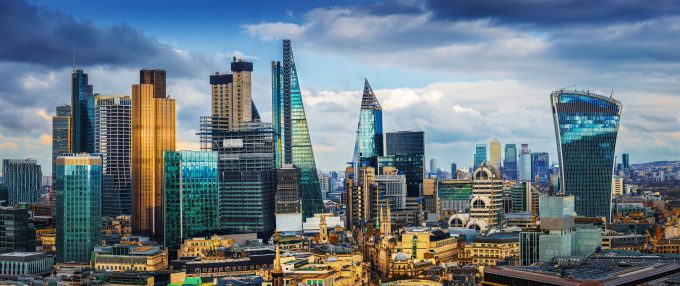How the real estate sector adapts to a ‘new normal’ following covid-19 could have huge implications for listed property companies.
QuotedData has reported on the likely effects on the retail and logistics sectors as well as the impact on valuations. One of the biggest unknowns, however, is the outlook for the office sector.
This week Barclays chief executive Jes Staley said the coronavirus pandemic could permanently change the way its business uses (or does not use) the office space and led to sensationalist headlines predicting the end of the office.
Staley said: “There will be a long-term adjustment in how we think about our location strategy. The notion of putting 7,000 people in a building may be a thing of the past.”
He added that Barclays would not revert fully to its pre-covid working habits and staff including investment bankers could work instead from branches and other locations.
Barclays is a major occupier of office space in London’s Canary Wharf and has a huge presence in cities around the world. A statement like this by one of the biggest banks and corporate occupiers in the world is bound to have sent shivers down the spine of office developers the world over.
Like most companies, Barclays has seen the majority of its staff working from home or backup sites during the lockdown.
Increasingly over the last few years, major corporates have been shifting to a hot-desking office strategy and allowing staff to work from home more often. It seems increasingly likely that this trend will be accelerated following the enforced (and in the main, successful) adoption by almost all businesses during covid-19.
But it is wrong to say that it spells the end of the office.
It is important to point out that demand for HQ space is still going to be strong. Attracting the best talent is a huge priority for companies and the role the office plays in this has been increasingly important in recent years.
Although technology has enabled businesses to continue to work effectively, it has its limitations and has not been good for everybody. Younger workers, for example, that may not have adequate space at home or feel their development is being impacted, have struggled according to a recent report by Nesta.
The upshot of covid-19 for offices is likely to be smaller space requirements. This will take a number of years to play out with corporate companies locked into long-term leases. But when they do look to go on the move, they will be looking for high-quality offices in prime locations.
An analysis of portfolios of listed property companies focused on office development in London, such as British Land, Derwent London, Land Securities, Helical and Great Portland Estates, reveals a litany of some of the biggest office success stories of the past decade. They have become past masters at unearthing new and up-and-coming locations in London and successfully building and pre-letting schemes.
Supply of grade A space (the best spec) is at historic lows across the UK and is particularly tight in London, meaning the office market will be able to sustain the possible drop-off in space requirements that is likely to follow. It is secondary space that is more of a worry.
Location has never been more important than it is now. It is not the end of the office. Prime offices in prime locations will endure.
